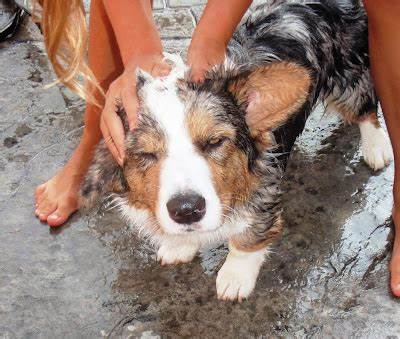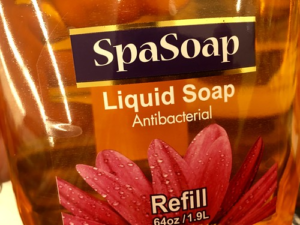It is essential for your dog’s general health to keep their ears healthy.Regular ear cleaning helps prevent infections, reduces discomfort, and ensures your pet remains happy and healthy. This comprehensive guide delves into the importance of ear cleaning, the best products available, and step-by-step instructions to keep your dog’s ears in optimal condition.
Dogs are prone to various ear issues, including infections, wax buildup, and foreign objects lodged in the ear canal. Regular ear cleaning offers several benefits:
Prevention of Infections: Regular cleaning helps prevent bacterial and yeast infections, which are common in dogs.
Odor Control: Cleaning removes debris and wax that can cause unpleasant odors.
Discomfort Reduction: Regular maintenance prevents itching and discomfort associated with ear issues.
Early Detection of Problems: Routine checks allow for early detection of issues like mites or infections.
Signs That Your Dog Needs Ear Cleaning
It’s essential to recognize when your dog’s ears require attention. Look out for:
Head Shaking: Frequent shaking of the head can indicate discomfort or irritation.
Scratching: Persistent scratching of the ears suggests itching or pain.
Odor: A foul smell emanating from the ears may indicate an infection.
Discharge: Presence of waxy, yellow, or brown discharge is a common sign of ear issues.
Redness or Swelling: Inflammation inside the ear canal is a clear indicator of a problem.
Choosing the Right Ear Cleaner
Selecting an appropriate ear cleaner is vital. Consider the following factors:
Ingredients: Opt for cleaners with gentle, non-irritating ingredients. Avoid products containing alcohol, as it can sting and isn’t generally recommended for dogs with irritated or sensitive ears.
Purpose: Some cleaners are designed for routine maintenance, while others are medicated for specific conditions.
Dog’s Breed and Health: Certain breeds are more prone to ear issues and may require specialized products.
Step-by-Step Guide to Cleaning Your Dog’s Ears
Proper technique is essential to ensure safety and effectiveness:
Prepare the Area: Choose a well-lit, comfortable space. Have the ear cleaner, cotton balls or gauze, and a towel ready.
Inspect the Ears: Gently lift the ear flap and look inside. Healthy ears should be light pink, odorless, and free from excessive wax or discharge.
Apply the Cleaner: Gently pour or spray the cleaner into your dog’s ear canal.
Massage the Base: Gently massage the base of the ear to distribute the solution.
Allow Shaking: Let your dog shake their head to loosen debris.
Wipe Away Debris: Use a cotton ball or gauze to remove excess solution and dirt.
Repeat if Necessary: If the ear still appears dirty, repeat the process.
Dry the Ear: Use a clean, dry towel to gently dry the ear canal.
Expert Advice: Steer clear of Q-tips since they might force material further into the ear canal.
Common Mistakes to Avoid
Using Human Ear Cleaners: Human ear cleaners can be too harsh for dogs and may cause irritation.
Over-Cleaning: Excessive cleaning can disrupt the natural balance of the ear canal.
Ignoring Signs of Infection: If you notice redness, swelling, or discharge, consult a veterinarian.
When to Consult a Veterinarian
While regular cleaning is beneficial, certain signs indicate the need for professional attention:
Persistent Odor: Strong, unpleasant odors could be a sign of an infection.
Excessive Redness or Swelling: These are signs of inflammation or infection.
Discharge: Yellow, brown, or bloody discharge requires veterinary evaluation.
Behavioral Changes: If your dog is excessively scratching or shaking their head, it may indicate discomfort.
FAQs
Why is it important to clean my dog’s ears?
Regular ear cleaning helps prevent infections, reduces discomfort, and ensures your pet remains happy and healthy. It removes wax and debris that can harbor bacteria and yeast, preventing unpleasant smells associated with ear issues.
How often should I clean my dog’s ears?
The frequency depends on your dog’s breed, activity level, and health:
Routine Maintenance: Once a week for breeds prone to ear issues.
Active Dogs: After swimming or exposure to moisture.
Infected Ears: As directed by a veterinarian.
What are the signs that my dog needs ear cleaning?
Watch for these signs that may indicate ear issues:
Excessive scratching or rubbing of the ears.
Head tilting or shaking.
Unpleasant odor emanating from the ears.
Redness or swelling inside the ear.
Discharge, which may be yellow, brown, or bloody.
Can I use human ear cleaners on my dog?
It’s best to use products specifically formulated for dogs, as human ear cleaners may contain ingredients harmful to pets.
How do I choose the right ear cleaner for my dog?
Consider the following factors:
Ingredients: Opt for cleaners with gentle, non-irritating components. Avoid products containing alcohol, as it can sting and isn’t generally recommended for dogs with irritated or sensitive ears.
Purpose: Some cleaners are designed for routine maintenance, while others are medicated for specific conditions.
Dog’s Breed and Size: Certain breeds are more prone to ear issues and may require specialized care.
How do I clean my dog’s ears safely?
Follow these steps for effective ear cleaning:
Prepare Materials: Gather the ear cleaner, cotton balls or gauze, and a towel.
Apply Cleaner: Gently pour or spray the cleaner into your dog’s ear canal.
Massage the Base: Gently massage the base of the ear to distribute the solution.
Allow Shaking: Let your dog shake their head to loosen debris.
Wipe Away Debris: Use a cotton ball to remove excess solution and dirt.
Are there natural remedies for cleaning my dog’s ears?
Some natural products, like Vet’s Best Ear Relief Wash, combine herbal ingredients to clean and soothe the ear canal.
Can I use vinegar or hydrogen peroxide to clean my dog’s ears?
It’s advisable to avoid using vinegar or hydrogen peroxide, as they can be too harsh and may cause excessive drying and irritation.
Accordingly
Regular ear cleaning is essential for your dog’s health and comfort. By understanding the anatomy, recognizing common issues, and choosing the right products, you can ensure your pet’s ears remain healthy and free from discomfort. Always consult with a veterinarian if you have concerns about your dog’s ear health.
To read more,Click Here.





